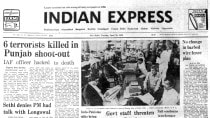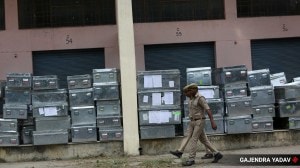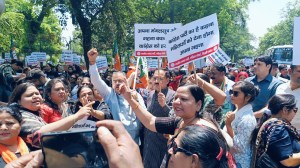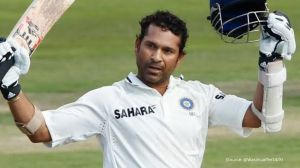- India
- International
Coronavirus crisis delivers yet another blow to political fortunes of Pakistan PM Imran Khan
Imran Khan's indecisive leadership in handling the corona crisis may have tipped the scales for Pakistan’s deep state that has always treated the civilian leaders with disdain.
 Pakistan Prime Minister Imran Khan. (File photo)
Pakistan Prime Minister Imran Khan. (File photo)
Reports from Pakistan claiming that premier Imran Khan’s days are numbered are probably just speculation, informed or otherwise. But there is no doubt that the shine has long gone from Khan’s government that came to power less than two years ago amid much popular expectations. His indecisive leadership in handling the corona crisis may have tipped the scales for Pakistan’s deep state that has always treated the civilian leaders with disdain.
Khan’s critics call him the “selected” prime minister. His party did emerge as the largest single party in the July 2018 elections. The army was widely seen as stitching up a majority for Khan in the national assembly and installing him as the prime minister. That does not, however, take away the high personal standing of Khan.
Khan is a genuine national hero in Pakistan. He has much good will around the world, including India. His call to cleanse Pakistan of corruption did find some resonance amongst the Pakistani people. The partnership between Khan and the army seemed a mutually beneficial one. Khan needed the army’s support to come to power. And the army could do with a credible face that could confront and delegitimise the old political class, and create the basis for an overhaul of the Pakistani system.
Optimists hoped that Khan’s special stature with the people would give him room to bargain with the army that has steadily gained ground against the elected leaders in recent decades. Pessimists, however, were convinced that Khan will find it hard to find wiggle room, and that he will be dumped once his political utility is over.
READ | Covid-19 pandemic God’s wrath for obscenity, nudity: Pakistan cleric

Historical record certainly rests with the pessimists. There was a time, a little over three decades ago, when Benazir Bhutto came to power after the death of General Zia-ul-Haq in a mysterious air crash in 1988. The arrangements that followed the decade-long rule of General Zia were described as a “troika”- an elected PM, a civilian president and the army chief.
In the years before and after General Pervez Musharraf’s military rule (1999-2008), the civilians struggled to hold their own against the army. Nawaz Sharif, who rose to prominence with the support of the army, sought to create space for himself on all the three occasions he became the PM. But each time, the deep state humiliated him.
The civilian president Ghulam Ishaq Khan sacked him in 1993 and Musharraf’s coup ousted him in 1999. The current army chief, General Qamar Javed Bajwa, got the judiciary to remove him from the office on charges of corruption in 2017.
Asif Ali Zardari, who led the Pakistan Peoples Party to power in the 2008 general elections, tried to assert himself when the US forces raided Abbottabad to kill Osama Bin Laden much to the embarrassment of the Pakistan army. But that weak attempt failed and Zardari is now serving out a 15-year prison sentence.
By the time Khan came to power, the PM’s office had, largely, been hollowed out. None of Benazir’s successors have had much say in running national security policies. They are the preserve of the army. The defence ministry was always run by the army. The key foreign policy accounts — India, Afghanistan, China, Saudi Arabia, and the US — were closely supervised by the army. And, as difficult domestic security challenges became serious in the last decade, the army took direct control of law and order in many areas.
READ | ‘Stay at home even if symptoms’: Imran Khan draws criticism for coronavirus advice
After Musharraf, the army learnt to run the system without being formally in charge. That left the civilian leaders with the job of running a competent front office for the army and managing the economy with some effectiveness. Khan, who inherited an economy that was in a bad state, has struggled to put it back on the rails. And the army chief was quickly inserted into the economic decision-making space.
Because Khan had no power, does not mean that he would be spared of criticism. His government has been widely blamed for the “weak responses” of Islamabad to the Balakot attack by the Indian Air Force in February 2019, the Modi government’s move to change the constitutional status of Jammu and Kashmir last August, and Delhi’s pressure campaign at the international Financial Action Task Force that is monitoring Pakistan’s commitments to curb terrorism on its soil.
The corona crisis was, arguably, an opportunity for Khan to rise to the occasion and demonstrate his leadership in tackling a grave challenge to Pakistan’s economy and security. But, as Khan fumbled, the army moved to quickly sideline him and take charge. This does not necessarily mean General Bajwa has decided that Khan is no longer a useful political asset. That might happen only when the General concludes that the post-corona geopolitical environment, including in Afghanistan, has turned more conducive to direct rule by the Army.
This article first appeared in print under the headline ‘Raja Mandala: Proving the pessimists right’. The writer is director, Institute of South Asian Studies, National University of Singapore and contributing editor on international affairs for The Indian Express
EXPRESS OPINION
More Explained
Apr 24: Latest News
- 01
- 02
- 03
- 04
- 05










































